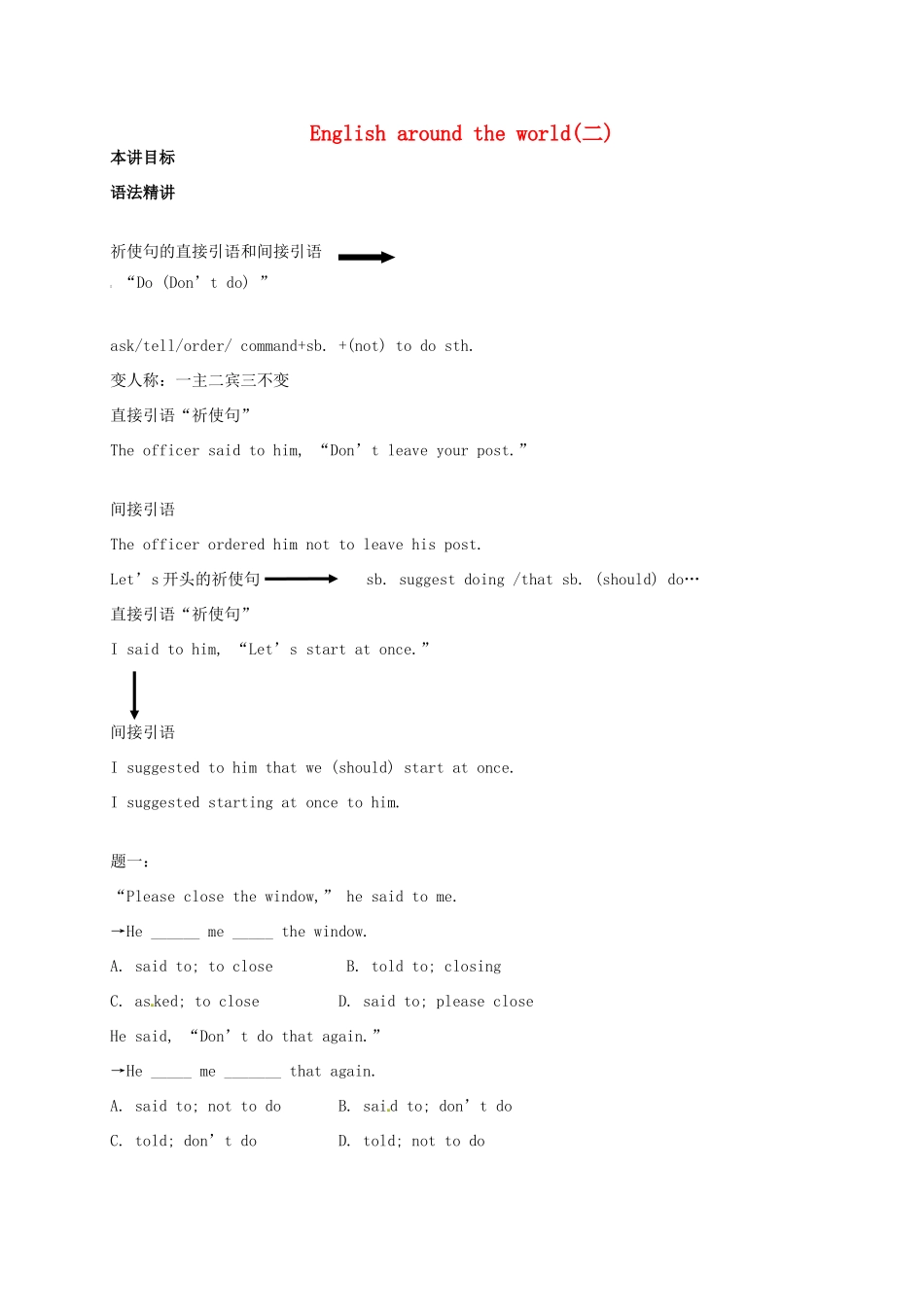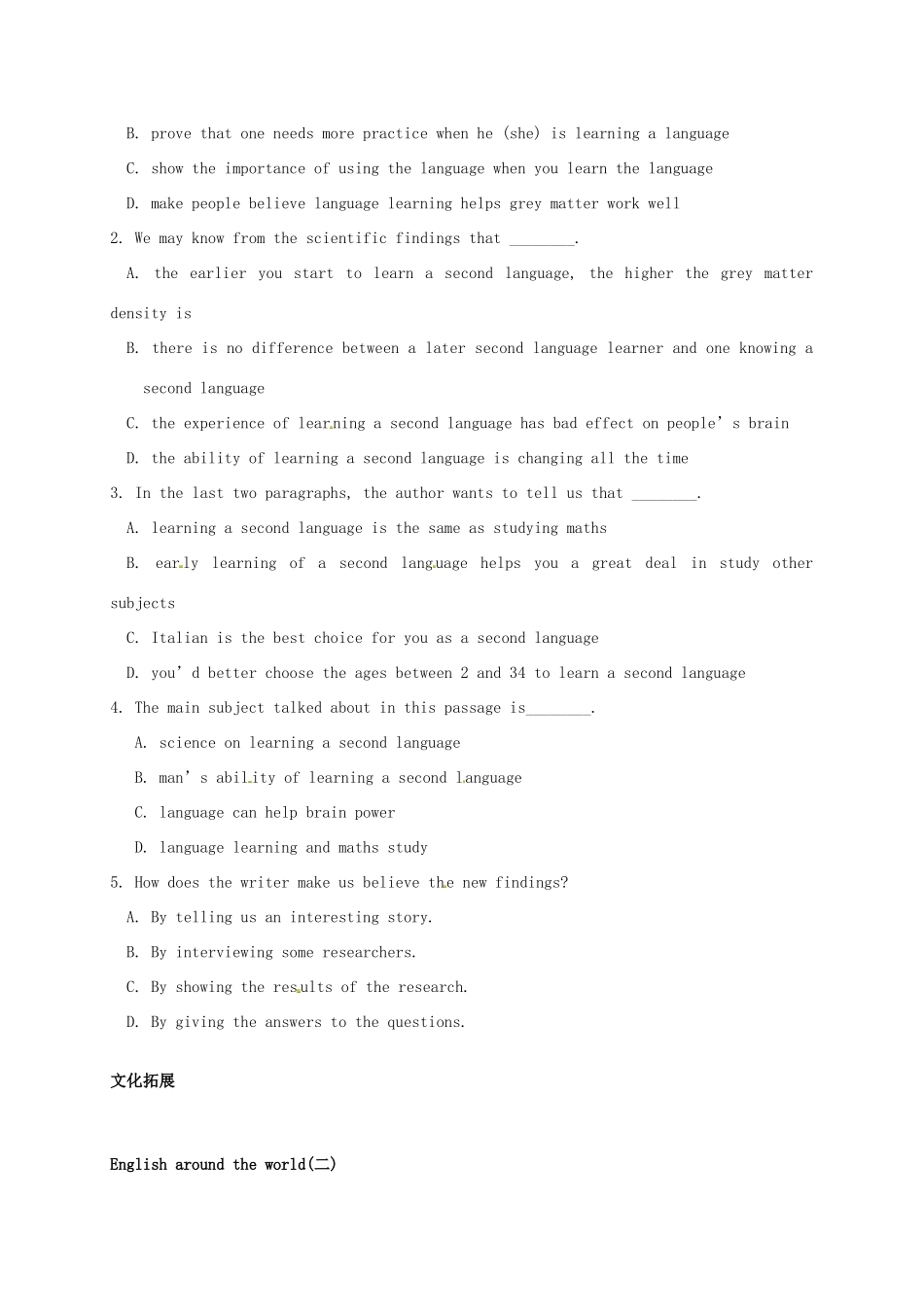English around the world(二)本讲目标语法精讲祈使句的直接引语和间接引语 “Do (Don’t do) ”ask/tell/order/ command+sb. +(not) to do sth.变人称:一主二宾三不变直接引语“祈使句”The officer said to him, “Don’t leave your post.”间接引语The officer ordered him not to leave his post.Let’s 开头的祈使句 sb. suggest doing /that sb. (should) do…直接引语“祈使句”I said to him, “Let’s start at once.”间接引语I suggested to him that we (should) start at once.I suggested starting at once to him.题一:“Please close the window,” he said to me. →He ______ me _____ the window.A. said to; to close B. told to; closingC. as ked; to close D. said to; please closeHe said, “Don’t do that again.” →He _____ me _______ that again.A. said to; not to do B. sai d to; don’t doC. told; don’t do D. told; not to do“Don’t put it on my hat.” his wife said to him. His wife told him ___ put it on ___ hat.A. don’t; his B. don’t; her C. not to; his D. not to; her能力提升与拓展题二:If English means endless new words, difficult grammar and sometimes strange pronunciation, you are wrong. Haven’t you noticed that you have become smarter since you starte d to learn a language?According to a new study by a British university, learning a second language can lead to an increase in your brain power. Researchers found that learning other languages changes grey matter. This is the area of the brain which processes information. It is similar to the way that exercise builds muscles.The study also found the younger people learnt a second language, the greater the effect was.A team led by Dr. Andrea Mechelli, from University College London, took a group of Britons who only spoke English. They were compared with a group of “e...


